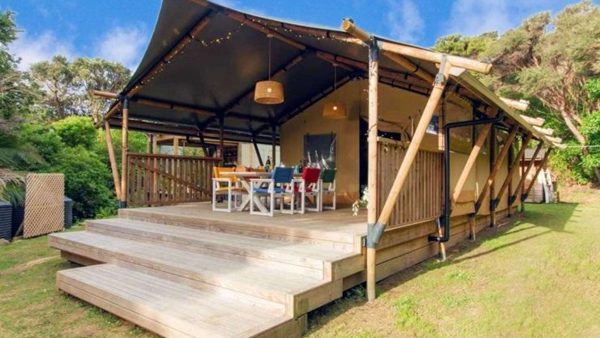By Kymberlee Gomes, Digital journalist
Analysis – Investors are capitalising on low property prices, and a major bank is predicting when interest rates will fall as house values continue to stabilise at much lower levels from the peak. Here’s what moved real estate this week.
House values are falling with a large number of properties for sale in Auckland leading the way down.
CoreLogic’s House Price Index indicates the average national property value fell 0.2 percent last month over April, though it is up 1 percent on the year earlier to $931,438.
The shift in the market was clear with values down 11 percent from the market’s peak, CoreLogic chief property economist Kelvin Davidson said.
High interest rates were the main reason for a drop in the market’s momentum, he said, doubting whether the upcoming tax cuts would make any difference.
But there could be more listings on the market with a shortening of the brightline test, freeing about 50,000 properties from capital gains tax, Davidson said.
Where are prices down?
Auckland saw values fall 0.8 percent last month, with Wellington down 0.6 percent, Tauranga down 0.5 percent, CoreLogic data showed.
Christchurch saw a value increase of 0.5 percent, Hamilton and Dunedin too had gains of 0.8 percent.
TradeMe data for April showed that the asking price for Auckland properties with five bedrooms dropped 6.4 percent year-on-year and the asking price for one- to two-bedroom properties dropped 2.8 percent while the city’s overall asking price was up 5.3 percent.
The average asking price on realestate.co.nz fell 0.8 percent to $859,301 in May on the month before, with the price 1.6 percent lower than a year ago.
The property market had been relatively stable since late 2022, with the average asking price ranging between $860,000 and $890,000, Realestate.co.nz chief executive Sarah Wood said.
Among the main regions, Auckland’s asking price was $1.06 million, moving the same amount as the national average, Waikato prices were about 3 percent higher, and Canterbury prices were marginally higher.
Central Otago/Lakes remained the most expensive at $1.45m, down 8.6 percent on April, but nearly 1 percent higher than a year ago.
However, the biggest price fall was in Wellington with the average price plunging 13.4 percent on April to $739,497, the lowest since November 2020, and 14 percent lower than a year ago.
Wood said the price fall in Wellington may be reflective of public sector jobs cuts. It was still not clear if the property market had hit the bottom, but with more houses on the market conditions were favouring buyers, she said.
Interest rates
ANZ Bank has changed its official cash rate forecast, predicting the first cut to land in February, rather than May 2025.
ANZ forecasts annual inflation to fall to 2.6 percent in the fourth quarter of 2024, and domestic-driven inflation to be at 4.7 percent.
The Reserve Bank, in last month’s monetary policy statement, indicated rate cuts won’t arrive until August 2025, while financial markets are pricing in a 25 basis point cut by November and nearly 50 basis points by February.
Infometrics has updated its OCR cut prediction. It now expects a cut in February 2025 rather than November 2024.
“But by February next year, we are anticipating that the RBNZ will have seen fourth quarter CPI inflation at 2.6 percent year-on-year – non-tradable (domestic driven inflation) still 4.7 percent year-on-year, but we are forecasting it to drop sub-4 percent the following quarter – and unemployment through 5 percent,” ANZ New Zealand chief economist Sharon Zollner said.
That should be enough to trigger a rate cut.
The number of people behind on their mortgage repayments fell for the second straight month in April, although the level of arrears is up 14 percent from last year.
Data from credit bureau Centrix shows 21,700 people were behind on home loan repayments, or 1.45 percent of all home loans, compared to 1.48 percent in March.
Overall consumer arrears also eased slightly to 12.52 percent of active borrowers, from 12.7 percent a month earlier.
Centrix said 458,000 people were behind on their payments, down from 463,000.
Auckland developments
Hundreds of townhouses being listed on the market in Auckland could be partly behind a slump in the city’s sales prices.
CoreLogic’s Davidson said the construction boom had played a role.
“Auckland has had a big rise in construction especially among the new build sector, townhouses… there’s choice for buyers and that’s taken the heat out of prices.”
He said around the time of the global financial crisis (GFC) new build properties had been discounted “pretty heavily” and it would not be surprising to see similar conditions now.
NZX-listed property developer Precinct Properties is capitalising on the soft market conditions and making a big push into residential developments in Auckland.
Precinct is buying land in central city areas for an apartment block and for a downtown student accommodation complex. It has an agreement with Eke Panuku, an Auckland Council body to buy a parcel of land in Mount Eden.
On the other hand, new housing developments have been stalled in Auckland’s Warkworth until a new wastewater treatment facility is built.
While Auckland Council is still issuing resource consents to developers, no wastewater connections can be made to properties south of the Mahurangi River until the new facility in Snells Beach is completed.
The facility was due to be finished by mid-to-late 2025, but for developments north of the river, it could be years before homes could be lived in as a new Northwest growth pipeline needed to be made and this was still in planning stages, WaterCare said.
-RNZ







